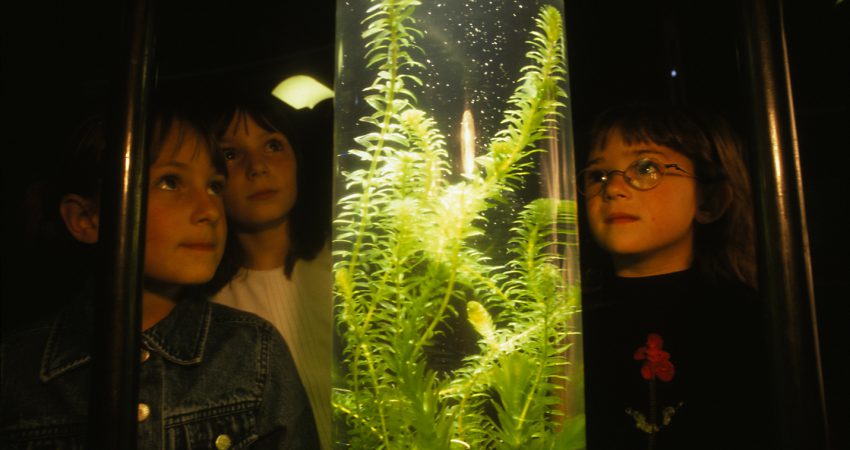
By Heather King - May 2014
PAPER CITATION
Amos, R.,& Reiss, M. (2012). The benefits of residential fieldwork for school science: Insights from a five-year initiative for inner-city students in the UK. International Journal of Science Education, 34(4) 485–511. doi:10.1080/09500693.2011.585476
It is widely assumed that experiences that take learners outside of their classrooms are beneficial. But in what ways? And do any such benefits outweigh the difficulties, such as cost, health and safety concerns, and competition with a content-laden curriculum? In this paper, the researchers report on how teachers, students, and parents evaluated residential fieldwork courses for 11–14-year-olds from under-resourced areas in London. The authors examined both the respondents’ expectations before the course and the benefits they reported afterward.
Research Design
The study involved 2,706 students from 46 state secondary schools, along with 70 of their teachers and 869 parents. The students participated in 77 residential fieldwork courses at 20 fieldwork centres across the UK. Residential courses are typically run over three to five days and are generally located in rural settings to allow easy access to countryside environments. Some of the courses in this study were curriculum-linked, offering traditional fieldwork in ecology or geology. Others were adventure-oriented, involving physical activities such as hill walking or canoeing, while others combined curriculum-based and adventure activities.
The data included
- Pre- and post-course student questionnaires containing a variety of attitudinal and cognitive questions
- Post-course small-group student interviews
- Pre- and post-course teacher interviews
- Pre- and post-course parent questionnaires
- Observation visits to 17 courses
Theoretical Basis
The data analysis drew on a framework developed by Rickinson and colleagues (2004) in which the outcomes of learning outside the classroom are divided into the following domains:
- Cognitive: knowledge gain, understanding, and inquiry skills
- Affective: personal attitudes, values, beliefs, and self-perceptions
- Social/interpersonal: communication skills, leadership, friendship, and teamwork
- Physical/behavioural: physical fitness, motor skills, and personal behaviours and actions
Findings
All three groups of respondents expected the fieldwork courses to develop students’ affective and social/interpersonal skills. This expectation was particularly pronounced for the adventure-focused courses. As expected, post-course data indicated that the most important gains respondents perceived were increased teamwork skills and relationship building. Teachers, in particular, noted improved levels of trust and more relaxed interactions among students after the course.
By contrast, cognitive developments such as learning new ideas or skills were seldom noted in student or parent questionnaire responses, pre- or post-participation, or in teacher interviews before or after the course. Some teachers noted that they played down curriculum-linked aspects of the course when promoting it to the students for fear that they might be a barrier to student participation and engagement.
However, in the 35 small-group interviews, students (N = 170) were able to outline the knowledge they had gained and the skills they had developed. In other words, although social and affective development may have been more obvious, cognitive development also occurred. The researchers suggest that the lack of findings in the literature of cognitive benefits for fieldwork may be due to the use of questionnaire instruments only. The additional use of semi-structured interviews employed in this study provided greater opportunity for the researchers to capture instances of cognitive learning. For example, the interviews prompted students to recall particular events in detail and allowed time for the students to fully articulate the scientific processes they had studied.
The researchers argue that the four domains of learning, rather than being alternatives in competition with one another, are complementary. Moreover, they note that positive effects in the social and interpersonal domains should not be underplayed: Experiences that foster these skills may be rare for students from underprivileged backgrounds, whose lives may be affected by considerable social tension.
Implications for Practice
The researchers report that teachers were often pleasantly surprised by the outcomes of the residential fieldwork courses. They had not expected the impacts to be so extensive. Perhaps wider reporting of the benefits would help other educators to overcome their perceived barriers to out-of-school experiences. In particular, the researchers recommend that, in planning and supporting further fieldwork, science teachers and field course providers should focus on courses that incorporate curriculum activities alongside the popular physical adventure activities in order to maximise learning across all domains.
Reference
Rickinson, M., Dillon, J., Teamey, K., Morris, M., Choi, M. Y., Sanders, D., & Benefield, P. (2004). A review of research on outdoor learning. Slough, UK: National Foundation for Educational Research.




